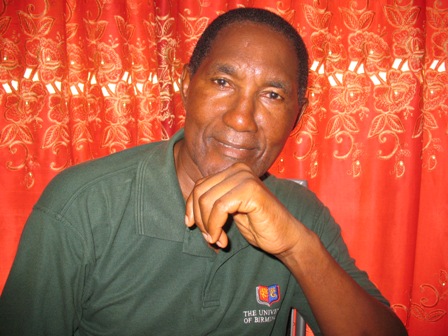
Time to Change the Debate
During that period in St. Kitts-Nevis, there were migrations, some level of crop diversity, some leaning towards tourism, and revolutions in education. However, the main debate in the islands remained sugar: It’s place in the society, in the economy, in the politics, and in the future of the islands. Few persons dared to think of St. Kitts-Nevis without seeing sugar – a crop that grew there probably as far back as the 1640s – 1650s. However, we are in the twenty-first century. The reality is that St. Kitts and Nevis have changed and continue to change radically. There were also technological and economic globalization transforming the world. Suddenly in 2005 – 2006 the sugar debate in St. Kitts and Nevis changed. Time moved the islands beyond the sugar era.
As an Afro-Caribbean person I appreciate and empathize with the ongoing “born here” debate that continues to mesmerize certain Virgin Islanders. Obviously it clarifies the place of one’s birth. It tells how early the various Afro-Caribbean groups got here. It can make one feel very good about himself/herself since it provides socio-cultural grounding, And it has served historically as a powerful political base for some persons. Thus we now learn that certain African descendents here are “indigenous” to the area. A claim neither history nor anthropology supports.
In every society, people are challenged to look at themselves within the narrow conversions of now or from the broad diversions of imagining the future. However, try as we may, none of us can hold back the hands of time. Social, economic, and political transformations keep happening, even in the Virgin Islands. Societies are always a function of ideas, time, technology, and money. These factors change the relevance of ideas and laws, even when some persons wish they can stand forever.
Obviously, one should never argue that being born in the Virgin Islands is of no consequence. But this may be the time when Virgin Islands society can pause and place the debate in proper perspective. The idea should be examined reflectively, through critical inquiry, and in search for a relevant, workable meaning. Admittedly, for a number of years it has been used as the reason for a feel good, better than you attitude. At other times it fostered blatant discrimination and Jim Crow attitudes among Afro-Caribbean people who share the peculiar dynamics of a common ancestry and common history. Often we have been divided and separated only by European capitalism, islands, and time. In the Caribbean of 2009, we ought to put behind us those manipulations of colonialism. Holding to those traditional attitudes of islandism can be inconsequential and somewhat stretching the debate. A claim that being an “indigenous Virgin Islander” is the most important factor to be taken into account as the future of the US Virgin Islands is being determined, can mirror the myopism of the historic sugar industry debate in St. Kitts-Nevis.
Here are some factors which will be the game changers, transforming the future of the US Virgin Islands. (1) These islands were bought by the US and remain a colony of this nation, governed by the US Constitution. (2) The population here has changed tremendously since the 1960s. All around, it is a much better educated, more confident population, than that which was here during the 1960s. (3) The population of these islands continues to change in quality and quantity, and the persons who claim to be “indigenous Virgin Islanders” are an aging group. (4) Non-native Virgin Islanders are owning more and more businesses and real estate than ever before, on St. John, Water Island, St. Croix, and St. Thomas. This is a complex reality that cannot be taken lightly. (5) As in the US, so it is in the Caribbean, those who are wealthy frequently pay the politicians, call the tunes, and shape the laws. (6) Presently the US Virgin Islands enjoys the best of two worlds and loves it. That is what has historically given these islands the economic and psychological edge in the Caribbean. Interestingly, not even the radical thinkers are pushing for status change, where being “indigenous Virgin Islanders” can really matter. It’s time to change the debate!
Editor’s note: Whitman T. Browne is an educator and author.
Keeping our community informed is our top priority.
If you have a news tip to share, please call or text us at 340-228-8784.
If you have a news tip to share, please call or text us at 340-228-8784.
Support local + independent journalism in the U.S. Virgin Islands
Unlike many news organizations, we haven't put up a paywall – we want to keep our journalism as accessible as we can. Our independent journalism costs time, money and hard work to keep you informed, but we do it because we believe that it matters. We know that informed communities are empowered ones. If you appreciate our reporting and want to help make our future more secure, please consider donating.





